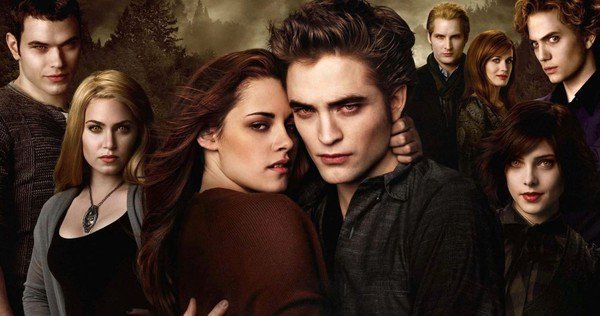
The Crimson Glow Fades, the Legacy Lingers: How The Twilight Saga Redefined a Generation at 15
Fifteen years is a blink in the vast eternity of a vampire, but it’s a lifetime in the fleeting pulse of pop culture. It was in 2005 that Stephenie Meyer’s Twilight first cast its pale, glittering shadow across the literary landscape, initiating a cultural earthquake that would redefine a generation’s understanding of romance, heroism, and the very nature of obsession. As the saga turns fifteen, its enduring impact is not merely a nostalgic whisper; it’s a complex, undeniable roar that shaped the desires, debates, and digital discourse of an entire demographic.
Before the crimson stain of its title became ubiquitous, before “Team Edward” and “Team Jacob” became a shorthand for divided loyalties, Twilight tapped into a raw nerve of adolescent yearning. It offered Bella Swan, an “everygirl” protagonist, a proxy for millions of readers who felt overlooked, awkward, and fundamentally ordinary. Into her quiet life crashed Edward Cullen, a vampire of impossible beauty, ancient soul, and devastating self-control. He was the ultimate forbidden fruit, a walking, talking paradox of danger and devotion, a being who craved her blood yet protected her with an agonizing tenderness. This wasn’t just a romance; it was an extreme romance, a love story painted in hues of life-or-death stakes, eternal commitment, and the intoxicating allure of the supernatural outsider. For a generation grappling with the intense, often overwhelming emotions of first love and self-discovery, Twilight provided a heightened, dramatic canvas onto which they could project every blush, every heartbreak, every whispered secret.
The genius, and perhaps the controversy, of Twilight lay in its redefinition of the “vampire romance.” Gone were the purely predatory creatures of Bram Stoker, or the poetic, tortured souls of Anne Rice. Edward was a vegetarian vampire, a glitter-skinned anomaly, a moral compass struggling against his very nature. This domestication of the monstrous resonated deeply, allowing readers to fantasize about a powerful, dangerous being who nevertheless chose them, who would move heaven and earth to protect them. This shift not only popularized a new archetype – the “nice” supernatural boyfriend – but also ignited a fierce debate about healthy relationships, consent, and the blurred lines between protectiveness and possessiveness. For many, Edward was the epitome of romantic devotion; for others, a problematic figure who exemplified purity culture and unhealthy control. Regardless of one’s stance, the saga forced a generation to articulate and interrogate their ideals of love, laying bare the complexities of desire and agency.
Beyond the pages and the silver screen, The Twilight Saga redefined how a generation engaged with fandom itself. It exploded at the dawn of pervasive social media, transforming passive consumption into active, communal experience. Online forums buzzed with theories, fanfiction flourished, and the “shipping” wars between Team Edward and Team Jacob became a cultural phenomenon, a rite of passage for many young internet users. This wasn’t just about liking a book; it was about belonging to a tribe, fiercely defending your chosen side, and finding community in shared obsession. Twilight proved the immense power of a dedicated, predominantly female fanbase, showing Hollywood and the publishing world that young women’s stories, and their purchasing power, were forces to be reckoned with. It paved the way for the YA boom that followed, proving the viability of adaptations like The Hunger Games, Divergent, and countless others.
Fifteen years on, The Twilight Saga‘s glitter may have dulled for some, and its problematic elements are more readily dissected through a modern lens. Yet, its shadow still stretches long. It taught a generation about the potent alchemy of the forbidden and the familiar, the intoxicating promise of eternal love, and the enduring power of a story that speaks directly to the turbulent heart of adolescence. From the hallowed halls of high school cafeterias to the digital battlegrounds of online forums, Twilight was more than a story; it was a societal mirror, reflecting and refracting the desires, anxieties, and burgeoning identities of a generation. It might be scoffed at, critiqued, or celebrated, but its fingerprints are undeniably pressed onto the cultural fabric, a permanent, glittering mark left by a romance that, for better or worse, redefined what it meant to fall in love when the world felt both utterly ordinary and exquisitely, dangerously, supernatural.
